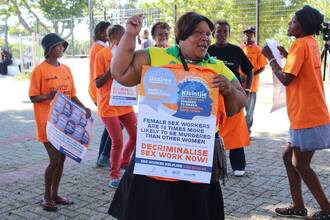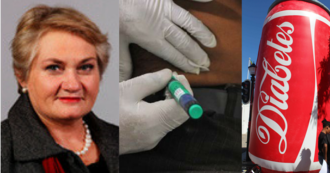- Featured
- Clean air
- Climate justice
- Consumer Rights
- Corporate Accountability
- Data access
- Early Childhood Development
- Economic fairness
- Education
- Electoral fairness
- Environmental justice
- Food justice
- Gender based violence
- Grants/social assistance
- Health
- Housing and infrastructure
- Industry interference
- Land Justice
- LGBTQIA+ rights
- Media/ information access
- Public transport
- Racism
- Reparations
- Safety
- Sanitation
- Service Delivery
- Sexual and Reproductive Rights
- Social justice
- Unemployment
- Womxn's rights/ gender equality
- Workers' rights
- More
-
Sign to demand healthy food for Boitumelong Secondary learnersEnsuring our children aren't hungry is our first priority as a community, but often the cheapest foods are unhealthy and can lead to health issues in our children, now and in the future, including type 2 diabetes, heart disease, high blood pressure, joint pain and certain cancers, which can be the result of lack of access to healthy food. We asked your school questions about what food most learners buy for lunch, and most said they buy kotas from vendors with sugary drinks. Learners also bought ice lollies, sweets and ice creams. This is not a balanced diet, and what we eat affects how much we can concentrate, and how sick we will get in the future. We use to have to just worry about HIV/AIDS, TB and other diseases, but now diseases like type 2 diabetes are increasing in our communities. The other reason we are getting sicker is because greedy junk food companies are aggressively marketing their products in our schools. But we can change this, if enough of us come together, we can ensure our voices are heard by the the MECs of Education and Health. If you don’t have email, you can join the campaign for free by dialing this code on your phone *134*1994*456#1 of 100 SignaturesCreated by amandla mobi member

-
Sign to demand healthy food for Batsogile Primary learnersEnsuring our children aren't hungry is our first priority as a community, but often the cheapest foods are unhealthy and can lead to health issues in our children, now and in the future, including type 2 diabetes, heart disease, high blood pressure, joint pain and certain cancers, which can be the result of lack of access to healthy food. We asked your school questions about what food most learners buy for lunch, and most said they buy kotas from vendors with sugary drinks. Learners also bought ice lollies, sweets and ice creams. This is not a balanced diet, and what we eat affects how much we can concentrate, and how sick we will get in the future. We use to have to just worry about HIV/AIDS, TB and other diseases, but now diseases like type 2 diabetes are increasing in our communities. The other reason we are getting sicker is because greedy junk food companies are aggressively marketing their products in our schools. But we can change this, if enough of us come together, we can ensure our voices are heard by the the MECs of Education and Health. If you don’t have email, you can join the campaign for free by dialing this code on your phone *134*1994*456#1 of 100 SignaturesCreated by amandla mobi member

-
Sign to demand healthy food for Bapedi Primary learnersEnsuring our children aren't hungry is our first priority as a community, but often the cheapest foods are unhealthy and can lead to health issues in our children, now and in the future, including type 2 diabetes, heart disease, high blood pressure, joint pain and certain cancers, which can be the result of lack of access to healthy food. We asked your school questions about what food most learners buy for lunch, and most said they buy kotas from vendors with sugary drinks. Learners also bought ice lollies, sweets and ice creams. This is not a balanced diet, and what we eat affects how much we can concentrate, and how sick we will get in the future. We use to have to just worry about HIV/AIDS, TB and other diseases, but now diseases like type 2 diabetes are increasing in our communities. The other reason we are getting sicker is because greedy junk food companies are aggressively marketing their products in our schools. But we can change this, if enough of us come together, we can ensure our voices are heard by the the MECs of Education and Health. If you don’t have email, you can join the campaign for free by dialing this code on your phone *134*1994*456#1 of 100 SignaturesCreated by amandla mobi member

-
Sign to demand healthy food for Aurora Girls High School learnersEnsuring our children aren't hungry is our first priority as a community, but often the cheapest foods are unhealthy and can lead to health issues in our children, now and in the future, including type 2 diabetes, heart disease, high blood pressure, joint pain and certain cancers, which can be the result of lack of access to healthy food. We asked your school questions about what food most learners buy for lunch, and most said they buy kotas from vendors with sugary drinks. Learners also bought ice lollies, sweets and ice creams. This is not a balanced diet, and what we eat affects how much we can concentrate, and how sick we will get in the future. We use to have to just worry about HIV/AIDS, TB and other diseases, but now diseases like type 2 diabetes are increasing in our communities. The other reason we are getting sicker is because greedy junk food companies are aggressively marketing their products in our schools. But we can change this, if enough of us come together, we can ensure our voices are heard by the the MECs of Education and Health. If you don’t have email, you can join the campaign for free by dialing this code on your phone *134*1994*456#1 of 100 SignaturesCreated by amandla mobi member

-
Stop taxing my periodThousands of amandla. mobi members have fought hard to make free sanitary products a reality for millions of girls. Unfortunately, for the households that could put a few rands together to buy a pack, the VAT hike announced earlier this year has made it even more expensive, meaning more people who need sanitary towels could go without. But right now, we have an opportunity to change that. Public submissions to the expert panel investigating the expansion of zero rating to more items was extended. But it ends on June 4, 2018. Send the panel a direct message telling them to recommend that sanitary products are included in the list of essential zero-rated products. People who get periods will buy up to 17 000 sanitary pads or tampons in their lifetime [1]. This basically means that the average person could spend up to almost R40 000 on sanitary pads in that time [2]. This in a country in which over 50% of the population live in poverty. The VAT hike has had an impact on the cost of living in Mzansi. People are spending much more on essential food items, reducing how much they have for other needs. And living a decent, dignified life requires so much more than food. Our community exists to primarily protect us, Black women. You, and over two hundred thousand others have taken action to make this real. And we need you to once again stand with us and make sure the panel recommends dropping the tax on our periods. [1] A guide to 'alternative menstruation': Save money and the world during your period, Pontsho Pilane for Bhekisisa. 31 Oct 2016. [2] Why treasury won't support a fall in the tampon tax, Pontsho Pilane for Bhekisisa. 5 Dec 2016.680 of 800 SignaturesCreated by Amandla.mobi Member
-
Life Orientation must not be scrapped in Grades 10-12Learners need LO in Gr 10-12 and many benefit a great deal from this vital subject. The Minister made the promise in 2015 that LO will not be scrapped, but strengthened. So don''t break this promise! The implications of taking out LO will mean that teachers will not specialise in LO at universities if it is a small subject that only goes to grade 9. It will mean the end of the subject. There are many great LO teachers who are devastated. Learners only take career ed seriously in Grades 11-12. LO teachers are heartbroken at the sad news of history usurping LO. This was not a democratic decision not were LO experts consulted. To pit one subject against the other is unwise. Instead, the Department can create a subject called which can include African history and herstory, African role models and Governance, Constitution, Voting, Human Rights, etc. LO topics are vital to learners in Grades 10-12, they give in-depth career education, sexuality education, create awareness on gender issues, improve study and exam writing skills, stress management, substance abuse, environmental protection and relationships, diversity and self-esteem enhancement. They also promote Indigenous Games. [1] Motshekga defends life orientation, The New Age. 15 Feb 2017.2,353 of 3,000 SignaturesCreated by Edna Rooth
-
Urgently restore safe access to healthcare and medicines in North West ProvinceOn Thursday health workers at the Mahikeng Provincial Hospital phoned families to come collect patients, some without medication [1]. Healthcare workers reported being threatened when reporting to work which forced even the emergency rooms to be shut down. And this isn't just happening at one hospital. Across the province health facilities haven't been functioning normally, either due to the lack of medicines or the lack of staff. This has led to many people not receiving medical care in many other hospitals and clinics. Whether in times of peace or in times of crisis, healthcare personnel should not be obstructed and hindered from accessing those in need of healthcare. Deliveries of medicines should be allowed to reach facilities. As the political solution to the crisis is being negotiated we call upon all relevant parties to urgently restore access to health services and medicines in North West Province. Please add your voice, and call on people in your networks to add theirs too. If enough of us come together, we can help make sure that lives are saved by restoring healthcare services. We will seek to meet with the Government and Health Unions this week and your Voice matters! The Stop Stockouts Project (SSP) is a consortium of six civil society organisations (TAC, SECTION27, MSF, RHAP, SA HIV Clinicians Society, RuDASA) dedicated to assisting the thousands of people whose lives are threatened by the chronic shortages of essential medicines and children’s vaccines in South Africa. The project was established in 2013, following the Mthatha depot crisis in the Eastern Cape in 2013. [1] http://bhekisisa.org/article/2018-04-19-the-price-of-suora-mahumapelos-defiance [2] https://www.spotlightnsp.co.za/2018/04/23/north-west-doctors-release-open-letter-calling-end-closure-health-services/ This project is funded by the European Union. The views reflected in this publication do not necessarily reflect the view of the European Commission.322 of 400 SignaturesCreated by StopStockOuts Project

-
Tell the City of Cape Town that we reject the budget and privatization of waterCape Town is being used as an international social experiment. Yes there is a drought but 'day zero' is a deliberate lie to justify the rapid privatization of water. The City used a formula that assumed it would not rain; it assumed that it would be windy and hot every day; they failed to consider that large agriculture was abusing water; day zero was flawed from the beginning. Now the international banks are using Cape Town to threaten other cities in SA and the rest of the world, to privatize water. That is why we need to join hands to stop the privatization of water in Cape Town * over 260 000 families (almost half of Cape Town) has already had water management devices forced onto us. * these limit the amount of water that households can use per day * the city aims to change to pre-paid water; in other words, no money, no water; they have already introduced this in parts of Grabouw *currently the real cost of water provision is R6 per kl; the City has increased this by 500% and want to increase it by a further 27-87 %. They want to charge high tariffs for water so the large banks can make pots of money. *the City wants to borrow from international banks for large scale projects such as desalination; the major part of the water budget will go to desalination, about R7.4 bn. In other words, the international banks will make profits out of water. Desalination puts our water into private hands, for profits; desalinated water has caused the death rate from heart attacks to double; it also makes fruit less nutritious. * just as the national govt increased electricity prices by 20% per year, the City wants to do the same with water. * many of the water management devices (over 16%) are defective; they are leaking and shut off, leaving thousands without water for basic needs; * many are getting huge bills of thousands and sometimes hundreds of thousands of Rands. *pressure is reduced in the pipes during the times that people need water; thousands are without water. *the City and other levels of govt knew more than 10 years ago they had to adopt water saving measures such as using recycled water for sanitation; they knew they had to recycle water for recharging aquifers; they knew they had to fix the infrastructure (the City loses 100 million litres per day through leaks). They failed. If we do not stop the privatization of water, the same high tariffs and poisonous desalination will be forced on more communities in SA and around the globe. The next generations will be paying huge tariffs for water. If you have no money, you will have no water. People will die as a result. The City must be stopped. The Water Crisis Coalition is marching to the City and to parliament on the 25th April 2018 at 10am from Keizergracht , at the end of Darling Street, opposite the castle. We want to hand over all signatures and petitions. We invite you to print copies of our petition and to bring them along on the day. Copies can be obtained via [email protected] Some useful references: Proof that Day zero formula was fake: https://drive.google.com/file/d/0B2Fo95AHFCN2bGdGWU1uajRHcDMxVFZUdFFObFU4djhuWFg0/view?usp=sharing Here is the downloadable leaflet which can be used as a free train ticket on the 25th April 2018, for the march. https://drive.google.com/file/d/0B2Fo95AHFCN2aThmWFRrdHZvYUhCNXp0ejFvX3piNHU3eVRZ/view?usp=sharing Joint Saftu-Water Crisis Coalition memorandum handed to the City on our demands on water 12 April 2018 https://drive.google.com/file/d/1xLVvvmRPzUZKJWFBxwGphhGFItJF6W0-/view?usp=sharing Downloadable petition which we will hand over to the Mayor on the 25th April 2018. Why not sign up your community or workplace? https://drive.google.com/file/d/0B2Fo95AHFCN2VVQ0OWYtSGNIWkNDeXVBWk9lcDk5ZFU5MVU4/view?usp=sharing Thesis on some of the 70 springs around Table Mountain https://etd.uwc.ac.za/bitstream/handle/11394/2686/Wu_MPHIL_2009.pdf?sequence=1&isAllowed=y Now the City wants to reduce the collection points for water at Newlands from 32 to 16. Let us march against this madness. Open the springs now. https://m.facebook.com/groups/320668791777159?view=permalink&id=355469214963783 Call by Reclaim Camissa on the need to preserve our springs http://thegreentimes.co.za/calling-government-conserve-groundwater-springs/ Reclaim Camissa site www.reclaimcamissa.org www.facebook.com/RECLAIMCAMISSA/ http://twitter.com/ReclaimCamissa There are a number of other petitions against the budget. We are not in competition with any of them but wish to bring our perspective forward. If you are not comfortable with signing our petition, here is a site which you can consider: https://www.dearcapetown.co.za/coct-budget/3,441 of 4,000 SignaturesCreated by Water Crisis Coalition
-
Better Care for HIV Positive People and their PartnersMost people living with HIV do not disclose their statuses to their sexual partners due to fear of rejection or gender-based violence. This means that the one with HIV may struggle to adhere to treatment leading to poor compliance or virological failure and the one with unknown status is at risk of HIV in case she or he is HIV negative. On the other hand, reproduction is a human right irrespective of HIV status and serodiscordant partners have no access to a program designed to assist them in safely achieving their reproductive needs. Those who want to conceive, considerations in choosing the optimal method to achieve pregnancy include transmission risk, treatment efficacy, and affordability should be prioritized. Research has proven that HIV-negative partners in serodiscordant couples are at risk of HIV infection if the index partner did not receive any intervention. Due to non-availability of assisted partner notification support for HIV positive people who want to disclose safely to their partners and safer conception services for discordant partners, people tend to keep their HIV statuses to themselves and engage in unprotected sex in order to meet their reproductive need. In 2016, World Health Organization (WHO) released self-testing and Partner notification guidelines which state that Voluntary assisted partner notification services should be offered as part of a comprehensive package of testing and care offered to people with HIV. The same year, South African National Department of Health released Health Sector HIV Prevention Strategy that focused on rendering HIV prevention service to serodiscordant couples among other services but until now, there is no guide on service delivery to HIV positive people and their partners even though the 2017-2022 NSP mentioned the need for Assisted Partner Notification and discordant partner support (including Prep). Serodiscordant couples are listed among vulnerable population on the strategy released in 2016 but other groups like truck drivers, inmates, OVC's, survivors of sexual abuse, Young women, and Girls and migrant population have programs specific for their health needs but no services to support people with HIV people and their partners. The Dukashe Family (in the picture - discordant marriage) is fortunate enough because the couple is in the health field and could afford safer conception service even though the wife struggled to disclose the status for a very long time (as most people with HIV do).158 of 200 SignaturesCreated by Mandisa Dukashe
-
Provide basic services to informal settlements“When we think about using the toilet, we feel dirty. We feel like we don’t have human dignity, but we have nowhere else to live, so we just have to make the best of it. This is why we are building our own toilets.” Margret Mabene, Mzondi resident. Just recently, reports surfaced that people living in Mzondi informal settlement, Ivory Park, had started a crowdfund so that they could build toilets [1]. This desperation exists across many informal settlements that are scattered across South Africa's cities. Despite this, many people living in informal settlements are overlooked in service provision. There is a growing demand for living space around cities, and South Africa has housing backlogs. People living in informal settlements have rights. The need to grant them access to water and sanitation is a human rights issue. South Africa has the laws that force municipalities to provide basic services. Abahlali BaseMjondolo, in their Harry Gwala court case against the City of Ekurhuleni, are a good example of how people living in informal settlements have used the law to defend their rights. In this case, the people successfully argued that Ekurhuleni had a statutory obligation in terms of the Water Services Act, which requires a safe albeit temporary toilet for each stand, including in informal settlements [2]. It is important for ordinary South Africans to stand in solidarity with those who are marginalised. This is important for the advancement of justice and equity, ideals that are enshried in our Constitution. People living in informal settlements deserve dignity, like all human beings, irrespective of their material condition. [1] Community tries crowd funding to get toilets, Zoe Postman for GroundUp News. March 13, 2018. [2] The right to basic services in informal settlements: Notes on Harry Gwala High Court hearing 12 December 2008, Abahlali BaseMjondolo. Dec 15, 2008.5 of 100 SignaturesCreated by Amandla.mobi Member
-
Decriminalise sex work now! Don’t let this moment passSex work is work, and right now sex workers are calling for solidarity to keep them safe by supporting the call for the full decriminalisation of adult sex work. Some in Parliament support this call and if enough of us make public submissions before the 26th February 2018, we could change the lives of sex workers. Like many other people, Nosipho uses her profession to support herself and her family, to further her studies, to save up for her future and to gain financial freedom and security [1]. But because sex work is criminalised in Mzansi, she and many others, face unsafe working conditions where they face corrupt police who want bribes or rape sex workers in exchange for not being arrested. https://www.youtube.com/embed/dg4l3X9rJHw?ecver=1 This video explains the 4 possible legal models for sex work and why South African sex workers want the full decriminalisation of sex work. Despite the overwhelming evidence showing the ongoing harm caused by criminalisation, the much anticipated sex work report by the South African Law Reform Commission (SALRC) recommends that sex work remains a criminal offence [2]. Now, for the first time in decades, there's a real chance for change. Sex workers and women’s rights groups, like SWEAT and Sisonke, have loudly condemned the report. Parliament's Multi-Party Women's Caucus noted the flaws of the report [3] and the chairperson of the Caucus stressing that the full decriminalisation of sex work is the only model that respects the rights of sex workers [4]. In just a few days, the Women’s Caucus could help determine what the future looks like for people like Nosipho. If we don’t speak out against this horrendous report sex workers may be sent back into danger. There’s only a few days left to make submissions responding to the report. Make sure to send yours through by the 26th February 2018. [1], I am a sex worker: criminalising my work puts me in danger, Nosipho Vidima for GroundUp News, June 14, 2017. [2] Parliament's women's caucus to host sex work summit, Jeanette Chabalala for News24. Feb 9, 2018. [3] Sex work report on prostitution rejected, Nicola Daniels for Independent News. May 30, 2017. [4] Multi-Party Women's Caucus disappointed about law reform commission report on adult prostitution, Ms Masefele Story Morutoa. June 1, 2017.1,001 of 2,000 SignaturesCreated by Amandla.mobi Member
-
DA MPs in the National Council of Provinces, vote yes to pass the Health Promotion LevyDiabetes is the leading cause of death for South African women [2], yet the beverage industry is desperately trying to delay and further water down the sugary drinks tax (Health Promotion Levy). BevSA and Coca-Cola’s job losses scaremongering has been exposed as exaggerated [1] and self serving [3]. A recent study showed that 3/4s of adult South Africans believe that government is doing the right thing when it makes and enforces policy to discourage the consumption of sugary beverages and junk foods [4]. We can’t underestimate how far the likes of Coca-Cola will go to protect their profits at the expense of our health. Leaked Coca-Cola executive emails show that the company has managed to get a “seat at the table in on-going regulatory discussions with the Ministry of Health” and has been fighting the tax [5]. BevSA and Coca-Cola also managed to keep health experts and advocates out of the NEDLAC process. Treasury seems to be standing up against companies like Coca-Cola and announced that the sugary drinks tax is likely to be introduced in April 2018. Treasury Deputy Director General Ismail Momoniat went one step further, acknowledging the criticism from the health sector regarding the watering down of the sugary drinks tax, stating that they would “... increase the tax until we get the result we need” [6]. [2] Diabetes - the silent killer. Amy Green for Health-e News August 15, 2017 [3] SA’s proposed sugar tax: claims about calories & job losses checked. Kate Wilkinson & Vinayak Bhardwaj for Africa Check August 2016 [4] 70% of South Africans support sugar tax - Genesis study August 31, 2017 http://www.genesis-analytics.com/news/2017/70-of-sa-suppports-sugar-tax-genesis-study [5] New #CokeLeak: Soda Tax Opposition in 8 More Countries. https://medium.com/cokeleak/new-cokeleak-soda-tax-opposition-in-8-more-countries-a53e2df3d8e4 [6] Sugary drinks tax set for April next year. Kerry Cullinan for Health-E News September 201783 of 100 SignaturesCreated by amandla mobi member

.png)
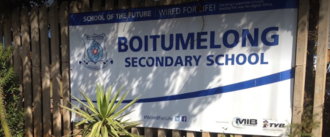
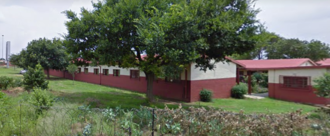


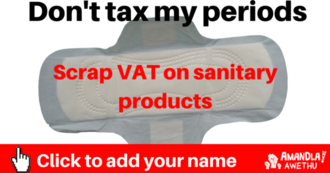

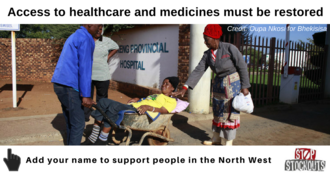
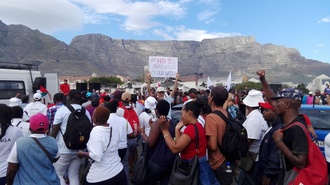
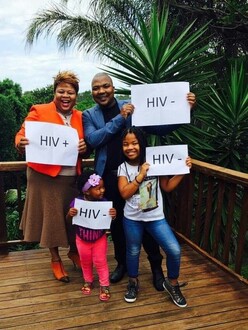
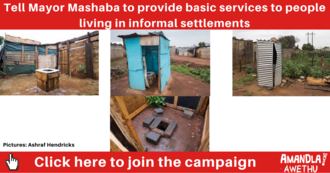.png)
